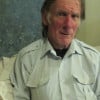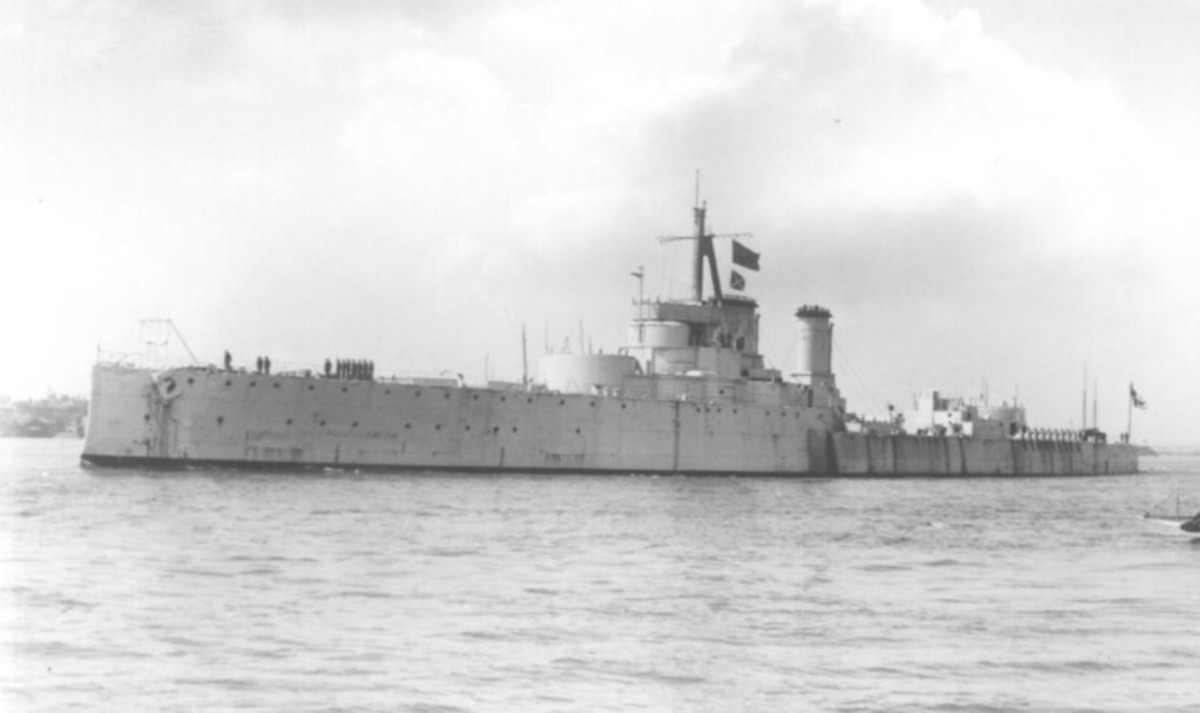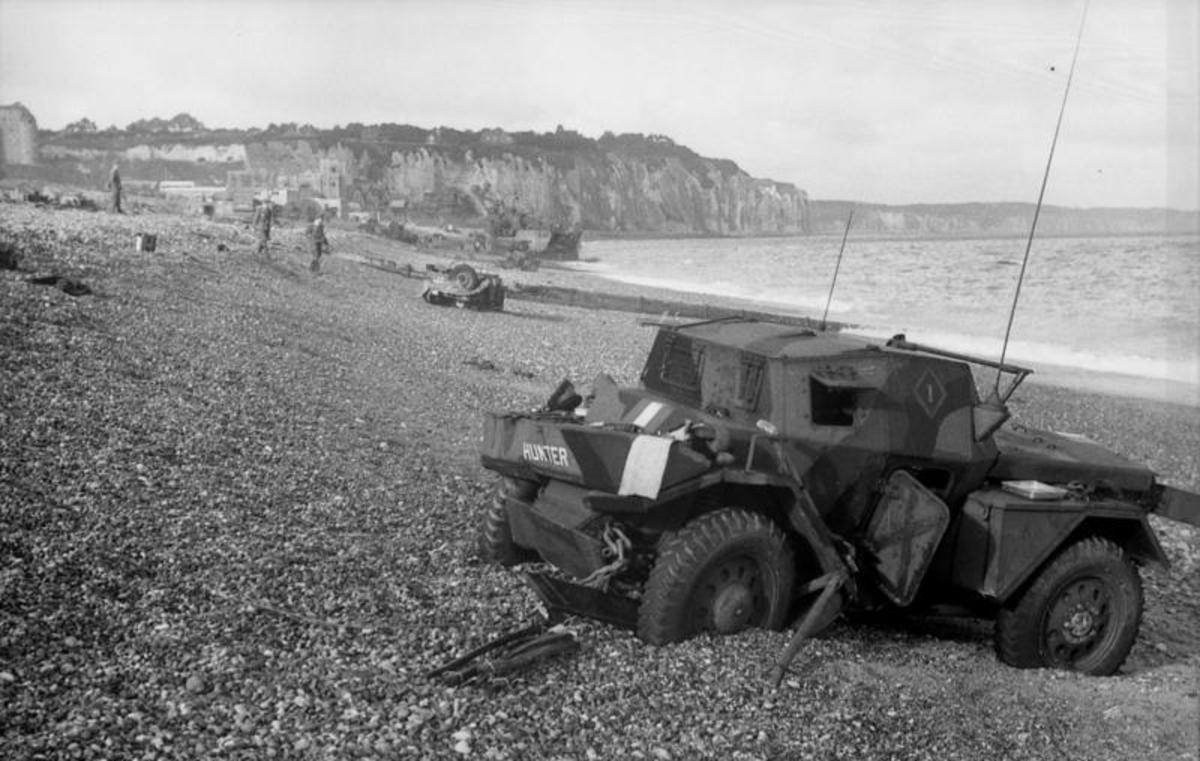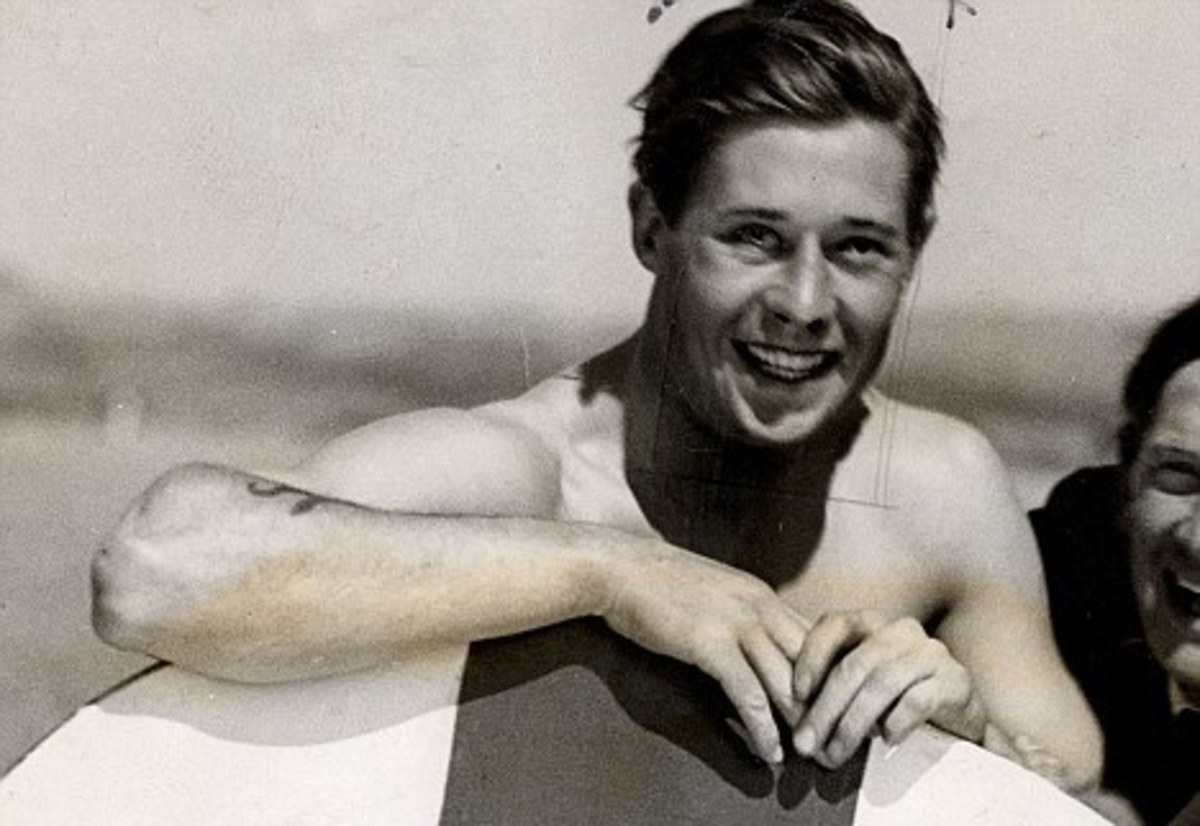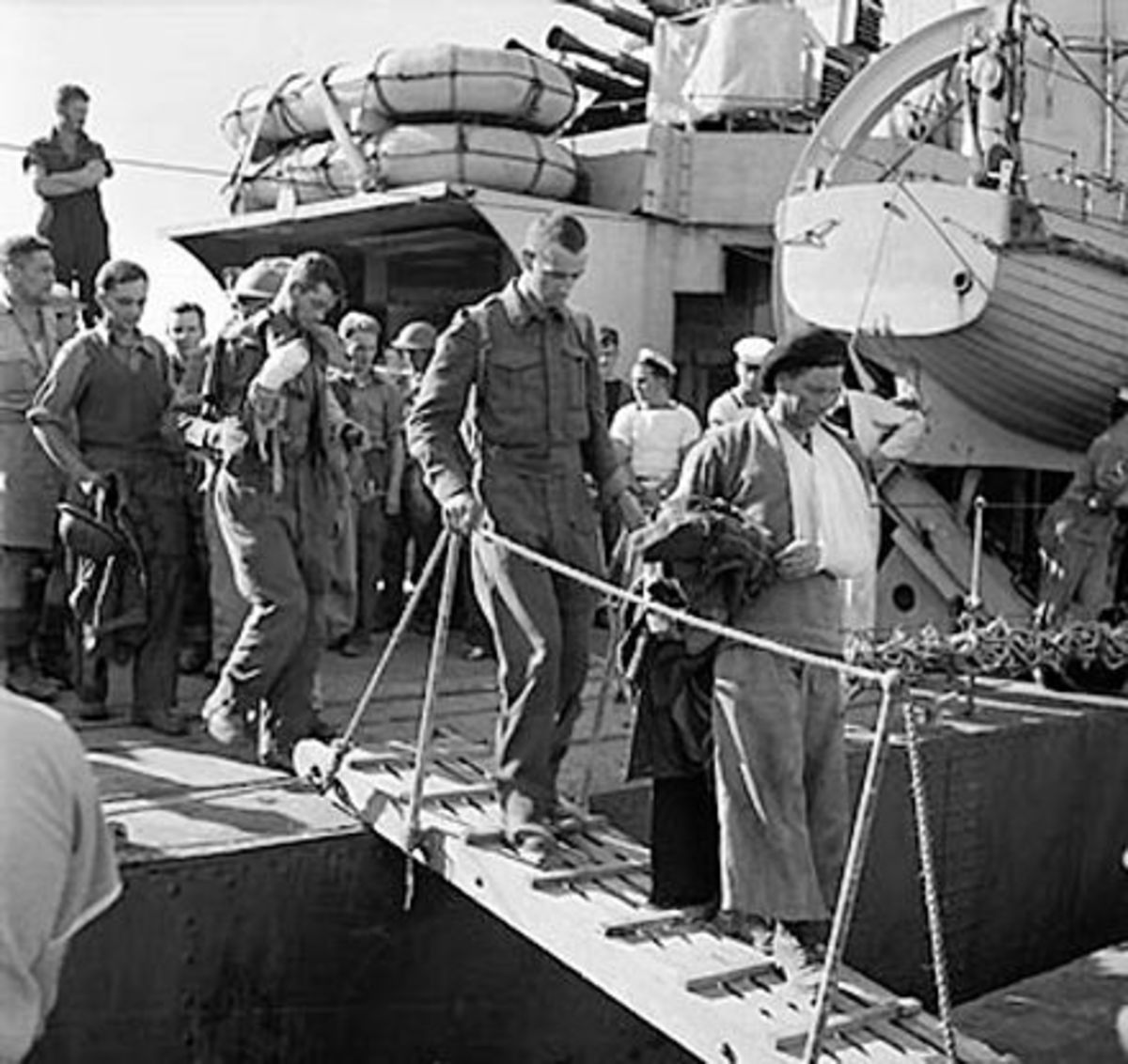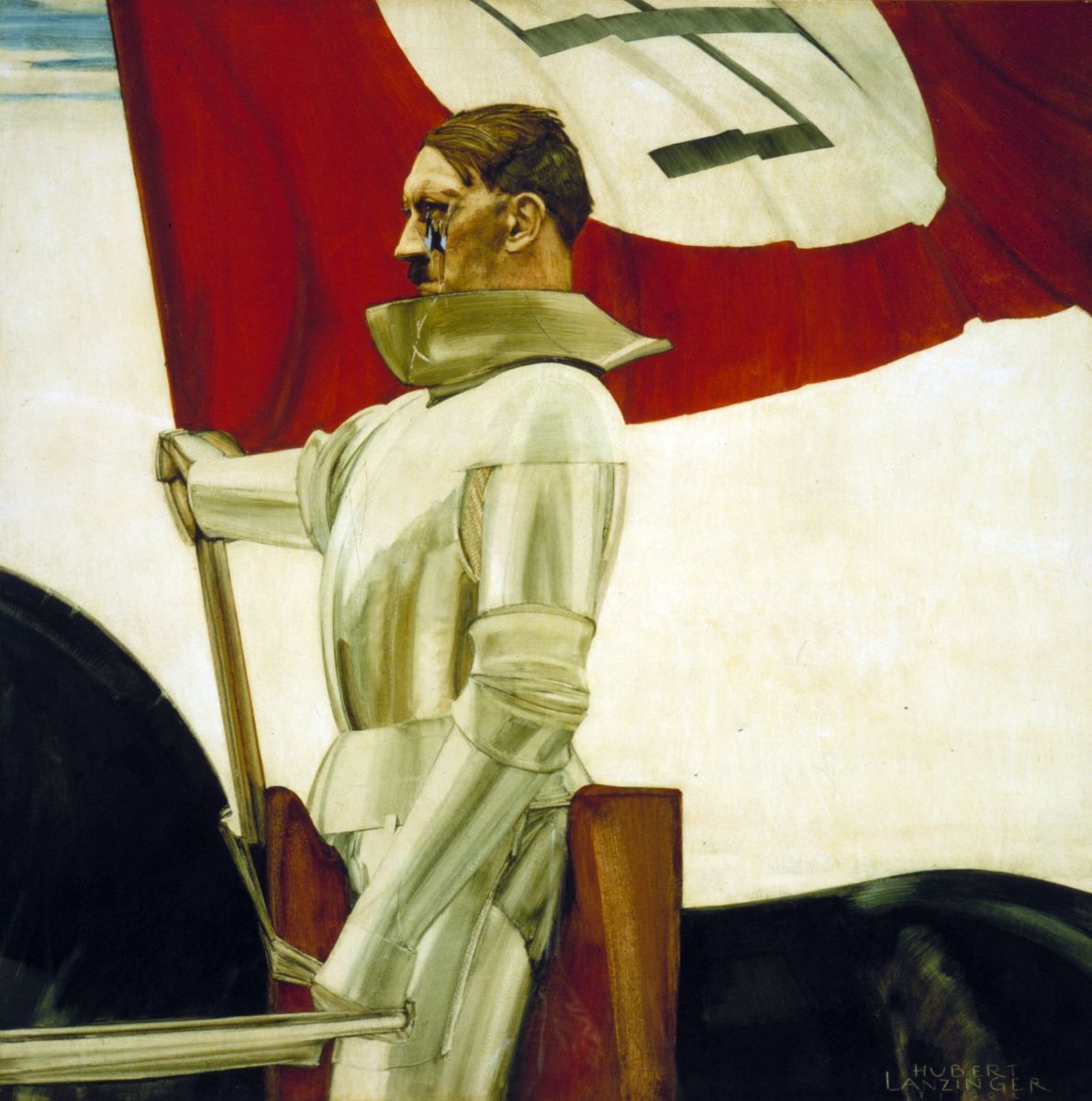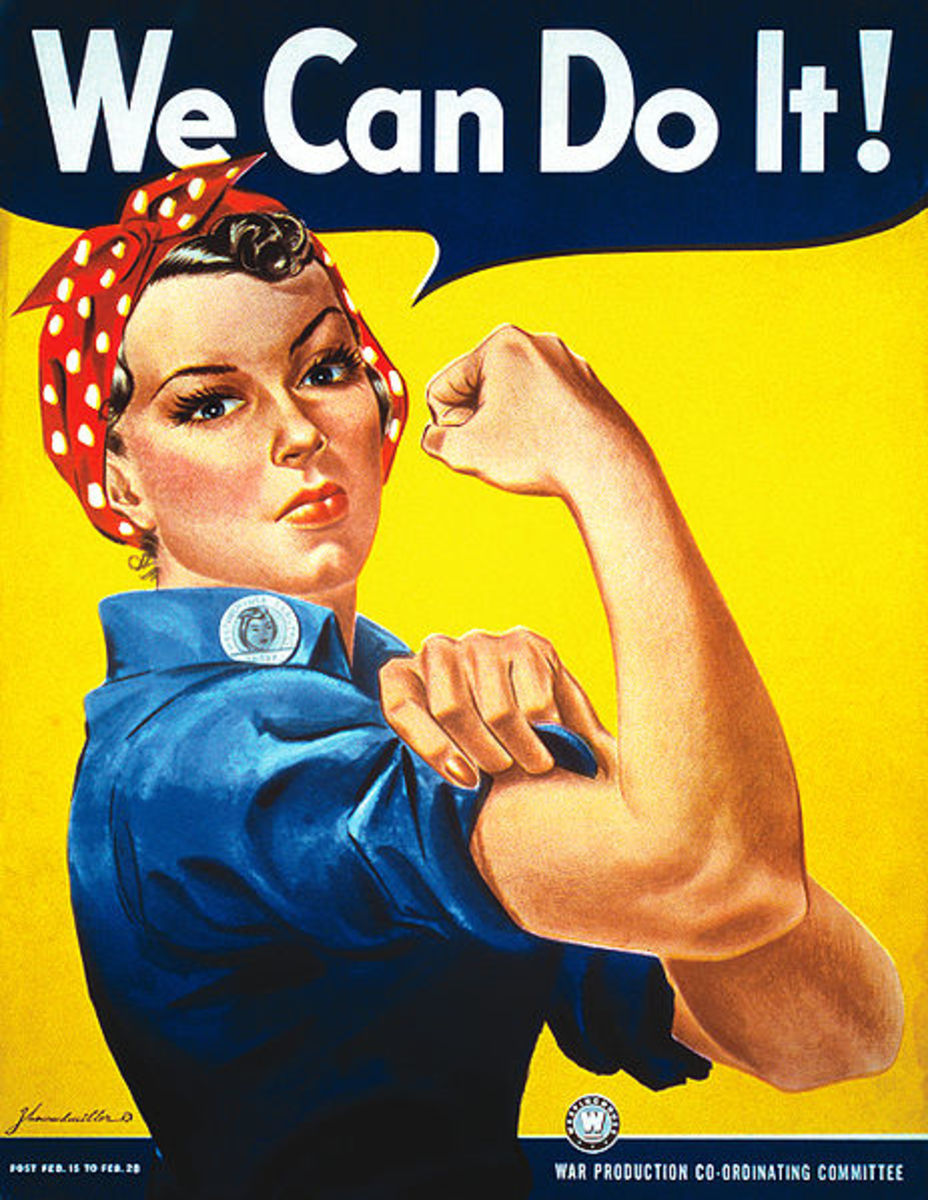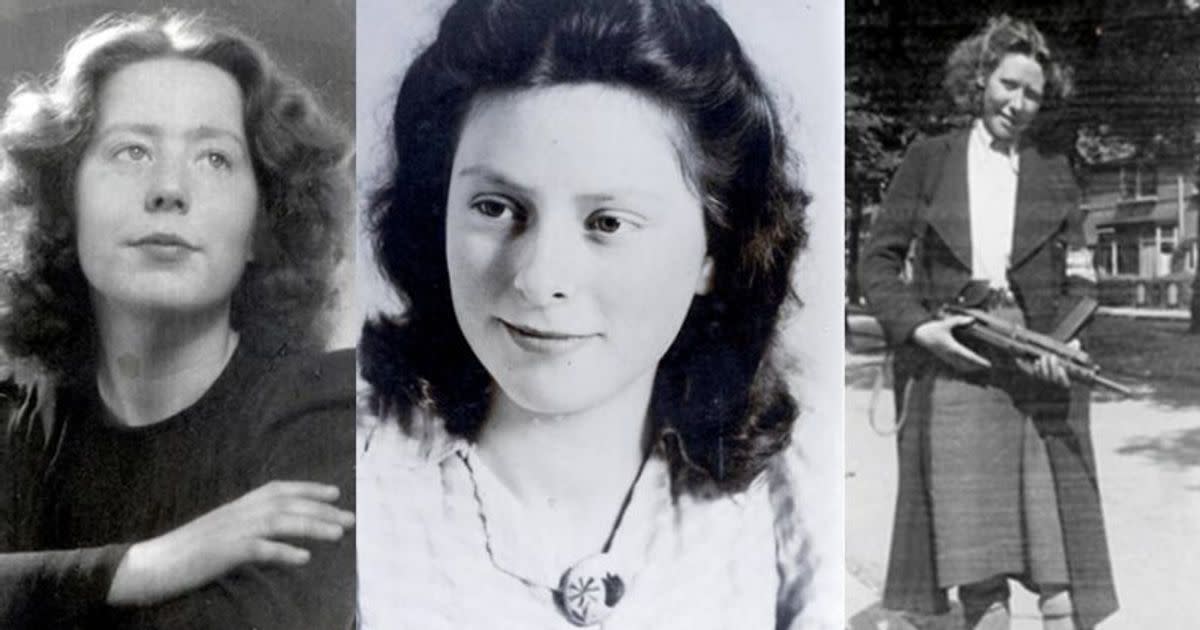- HubPages»
- Education and Science»
- History & Archaeology»
- History of the Modern Era»
- Twentieth Century History
Heritage - 33: Now You See It, Now You Don't - "It's All Done With Mirrors" [All's Fair in Magic and War]
Is it illusion, disguise - or a smoke screen?
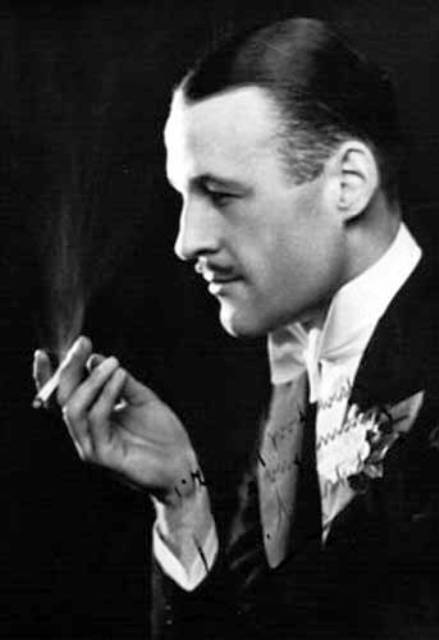
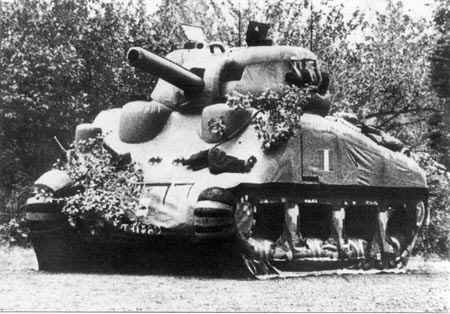
"Thank you, ladies and gentlemen", the man bows and allows the handler to lead the elephant off stage...
"And now for something completely different", he says, fanning a deck of cards for his admiring audience. David Copperfield? No, the American magician wasn't even a glint in his father's eye at the time. For that matter this is not even Paul Daniels. Sleight of hand goes a long way back. The magician in question was successor to his father Nevil and grandfather John Nevil.
The name of the man I have in mind is Jasper Maskelyne. Born in 1902, for much of his adult life he was a stage musician. He had another claim to fame, if there was any substance to his stories of wartime exploits. Ladies and gentlemen I will give you the facts as I know them and leave it to you to judge the veracity of his tales...
One of a well established family in the 'vanishing' business, in 1939 he enlisted as an officer in the Royal Engineer Corps based at Chatham in East Kent - not far from the Thames, an important ingredient in the story of his emerging military career. British military intelligence contacted him with regards camouflage, ruses and misleading the enemy. In 1936 he had brought out a 'Book of Magic', where he laid out stage trickery and 'mind-reading'. A year later the British newsreel editors of Pathe News introduced him to the wider public in 'The Famous Illusionist', showing amongst other feats his razor blade eating stunt, swallowing the razor blades individually.
The illusionist - for king and country
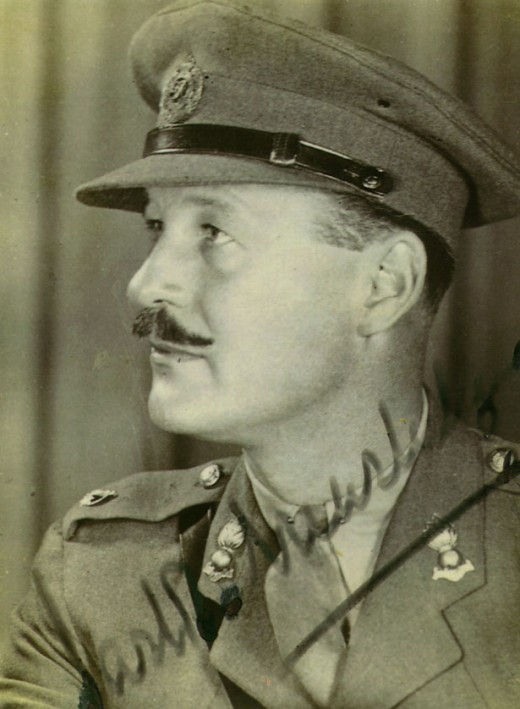
Is it, or isn't it?
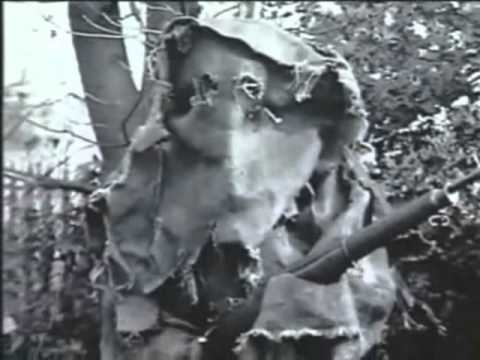
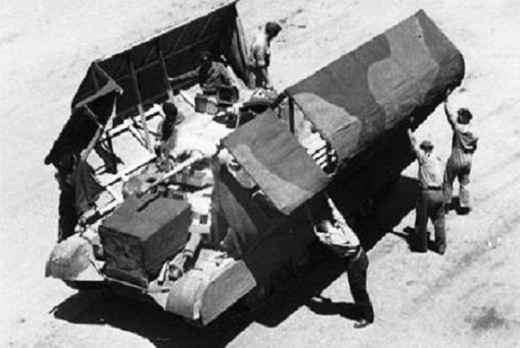
As indicated, Maskelyne enlisted in September 1939...
There is an account of him persuading senior officers to his way of thinking by projecting the spectre of a German warship on the river nearby, using mirrors, lighting and a model. Training that followed at the Camouflage Development and Training Centre at Farnham Castle in Surrey during 1940 he found too tedious for his liking. He claimed in a later book that "a lifetime of hiding things on the stage" taught him more in the field of camouflage "than rabbits and tigers will ever know". Fellow camouflage trainee Julian Trevelyan observed that he "entertained us all with his tricks in the evenings". He also noted that Maskelyne's attempts to 'hide' concrete pillboxes (short term gun and observation emplacements) were less successful.
Head of 'A' Force Deception Unit, Brigadier Dudley Clarke took Marskelyne on to work for MI9 (Military Intelligence North Africa and Middle East in Cairo. The task was to develop equipment to help soldiers escape captivity. He also lectured on escape methods, with hidden tools in cricket balls for example, saw blades in combs and miniature maps hidden in table games for a short time (cards, board games etc).
Maskelyne was on the staff of Geoffrey Barkas' camouflage section in Helwan in the Nile Valley upriver of Cairo, established in November, 1941. He was subsequently made C.O. of the subsidiary 'camouflage experimental section' at Abbasia. It was soon clear to his seniors that his leadership was failing, so he was transferred to 'welfare' (entertainment). Peter Forbes wrote of the showy magician's input as being, "either absolutely central (if you believe his account and that of his biographer) or very marginal (if you believe the official documents and more recent research".
The furthering of the myth of his own inventive achievements was in his character. He probably fervently believed it himself as a showman. Clarke persuaded Maskelyne to take credit both as cover for the real creators of the dummy equipment, and to foster confidence in the methods used within Allied High Command. After all, as an internationally renowned showman he was more credible than complete unknowns who were kept in the shadows for security reasons.
Maskelyne's ghost-written version of his achievements, 'Magic: Top Secret' was published four years after hostilities ended with Germany and Japan, in 1949. Forbes dismissed the book as 'lurid' with extravagant claims of cities 'disappearing', armies re-locating, dummies proliferating - even submarines - all as a result of his knowledge of the magic arts. Forbes added that David Fisher's biography showed he was "clearly under the wizard's spell". In the book Maskelyne claimed his team produced
"...dummy men, dummy steel helmets, dummy guns by the ten thousand, dummy tanks, dummy shell flashes by the million, dummy aircraft..." and so on
Richard Stokes' research tells us much of Maskelyne's account of his role in counter-intelligence operations as related in his book was pure invention, and that no unit known as 'The Magic Gang' existed at the time, that his part in deception technology was minimal.
Christian House reviewed Rick Stroud's book, 'The Phantom Army of Alamein' in the UK newspaper 'The Independent', saying it "shows Maskelyine as one of the more grandiose members of the WWII desert camouflage unit" and as "a 'chancer' tasked with experimental developments, who 'fogged' his own reputation as much as any desert convoy".
David Hambling wrote on 'Wired' of David Fisher's acceptance of Maskelyne's tales, "A very colorful account of Maskelyne's role is given in the book 'The War Magician' - reading it you might think he won the war single-handed [What, it wasn't John Wayne after all?]. Hambling denies Maskelyne was able to 'hide' the Suez Canal. He explains:
"In spite of the book's claims, the dazzle lights were never actually built, although a prototype was tested".
"Lights, camera, action!"
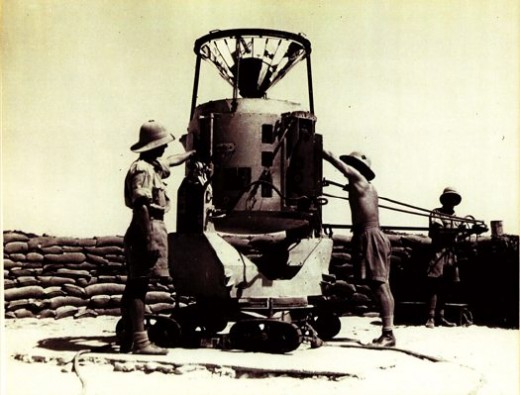
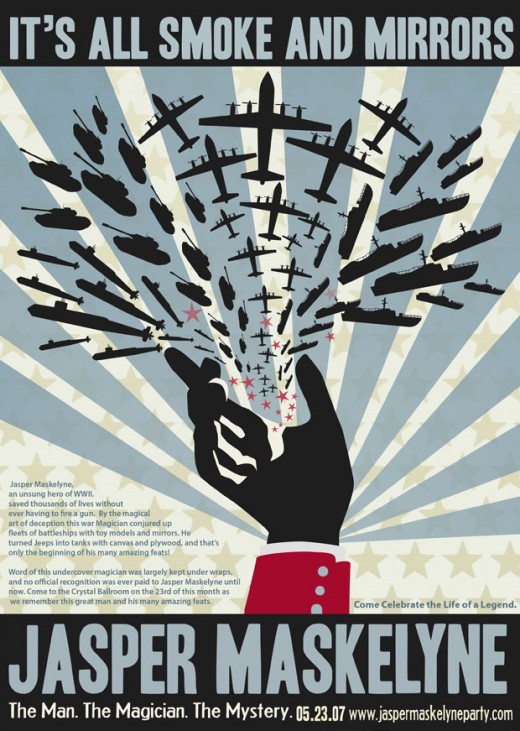

David Fisher's account of Maskelyne's wartime career. Was he what he claimed to be? Was he as effective as Mr Fisher's book puts him across? Were his critics justified? You as readers are the jury, posterity is the judge. Will the sentence be damning?
High and dry in Africa - disbelieved at home
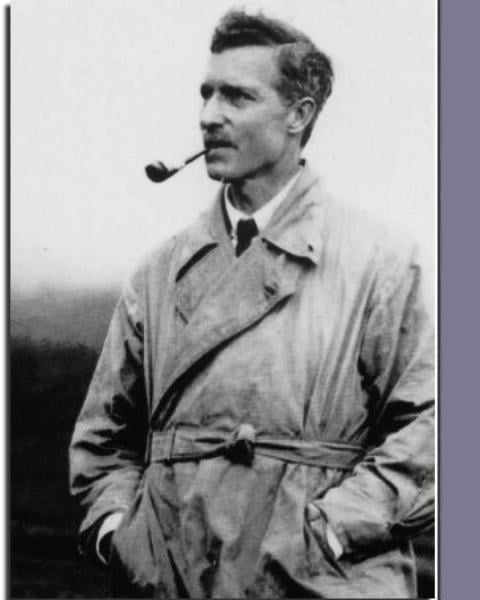
In 2002 a newspaper article attested...
..."that Maskelyne received no official recognition". For a vain man this would have been intolerable. He died an embittered drunk. It gives his story a poignancy without which it would be mere chest-beating". Death came to him in 1973, a dissolute exile in Kenya.
Whether you believe him or his critics, whether you think his story credible or not, you have to look at preparations for D-Day in East Anglia, England. Dummy soldiers, tanks, other vehicles, air- and landing craft convinced German reconnaissance that the Western Allies planned to land in the Pas-de-Calais, led by General George 'Blood and guts' Patton. The ruse was strengthened by counter-intelligence supplied by the double agent 'Garbo' and his 'team' recruited across Britain.
Towns and cities did vanish in Britain, where street and factory lights were doused and decoys lit in nearby fields and hills to resemble bomb explosions, detonated by remote control. In theory his claims were plausible. Much of the dummy equipment was destroyed immediately after the war.
Naturally with the advent of the Cold War military intelligence wanted to keep its tricks secret from the Soviets. Maskelyne might have been luckier if things had turned out differently between the Allies - western and eastern - after Hitler's defeat. It was all down to mistrust - and smokescreens.
The oldest way out of a tight diplomatic corner or tricky situation for military intelligence when challenged was - probably still is - "Deny, deny, deny!" .
Was Jasper Maskelyne right to blow his own trumpet?
Could his assertions have been construed as counter-productive in the light of the Cold War?
© 2016 Alan R Lancaster
